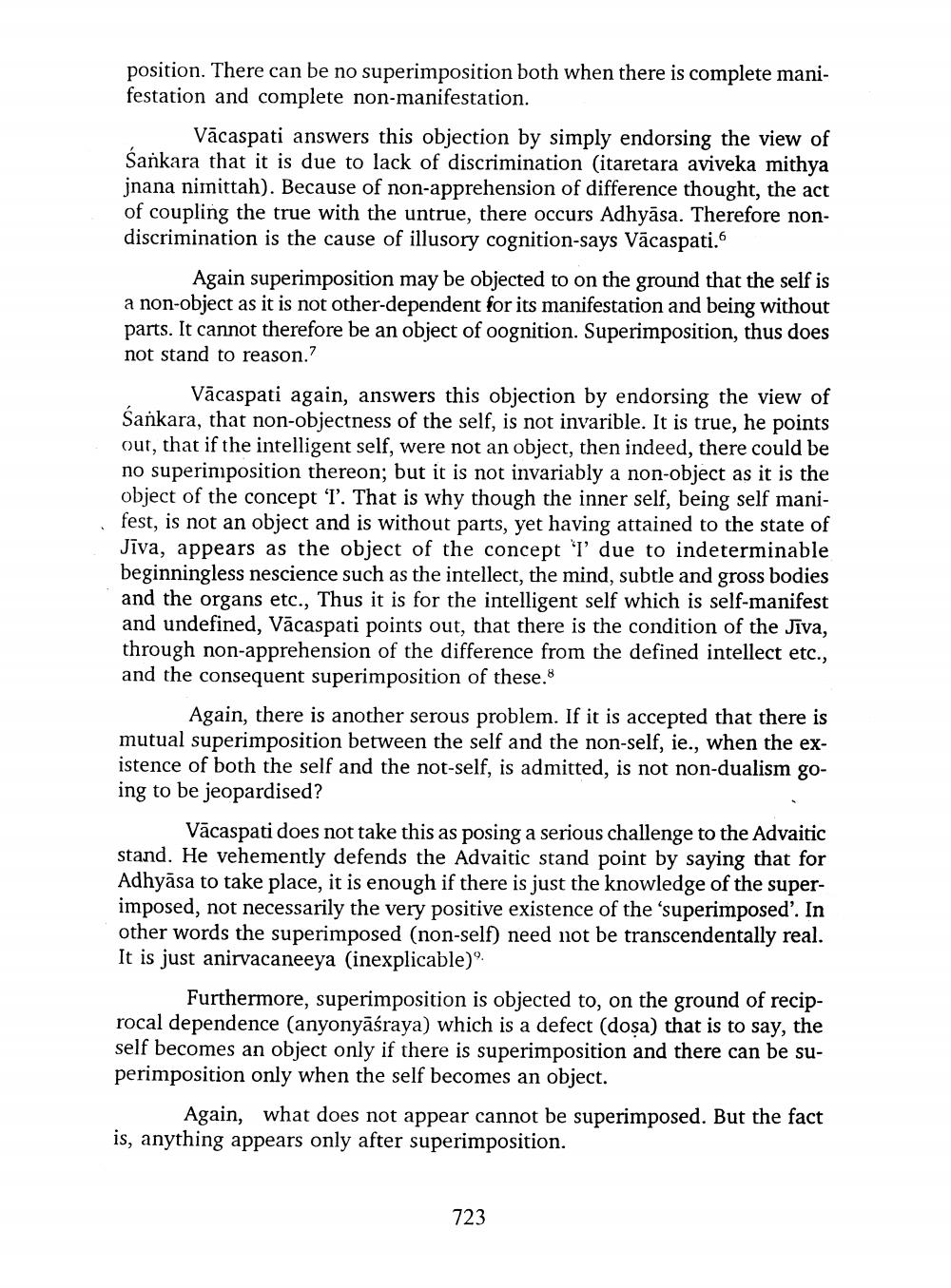________________
position. There can be no superimposition both when there is complete manifestation and complete non-manifestation.
Vācaspati answers this objection by simply endorsing the view of Sankara that it is due to lack of discrimination (itaretara aviveka mithya jnana nimittah). Because of non-apprehension of difference thought, the act of coupling the true with the untrue, there occurs Adhyāsa. Therefore nondiscrimination is the cause of illusory cognition-says Vācaspati.
Again superimposition may be objected to on the ground that the self is a non-object as it is not other-dependent for its manifestation and being without parts. It cannot therefore be an object of oognition. Superimposition, thus does not stand to reason.?
Vācaspati again, answers this objection by endorsing the view of Sankara, that non-objectness of the self, is not invarible. It is true, he points out, that if the intelligent self, were not an object, then indeed, there could be no superimposition thereon; but it is not invariably a non-object as it is the object of the concept 'l'. That is why though the inner self, being self manifest, is not an object and is without parts, yet having attained to the state of Jīva, appears as the object of the concept 'l' due to indeterminable beginningless nescience such as the intellect, the mind, subtle and gross bodies and the organs etc., Thus it is for the intelligent self which is self-manifest and undefined, Vācaspati points out, that there is the condition of the Jiva, through non-apprehension of the difference from the defined intellect etc., and the consequent superimposition of these.8
Again, there is another serous problem. If it is accepted that there is mutual superimposition between the self and the non-self, ie., when the existence of both the self and the not-self, is admitted, is not non-dualism going to be jeopardised?
Vācaspati does not take this as posing a serious challenge to the Advaitic stand. He vehemently defends the Advaitic stand point by saying that for Adhyāsa to take place, it is enough if there is just the knowledge of the superimposed, not necessarily the very positive existence of the 'superimposed'. In other words the superimposed (non-self) need not be transcendentally real. It is just anirvacaneeya (inexplicable)
Furthermore, superimposition is objected to, on the ground of reciprocal dependence (anyonyāśraya) which is a defect (dosa) that is to say, the self becomes an object only if there is superimposition and there can be superimposition only when the self becomes an object.
Again, what does not appear cannot be superimposed. But the fact is, anything appears only after superimposition.
723




